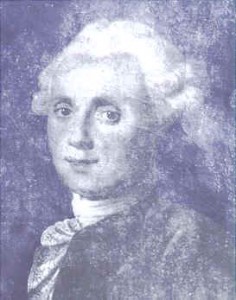Jupiter is sure to delight all who view it, from professional observatories to amateurs with handheld binoculars. Make sure to check out its four Galilean moons and see if you can make out colorful cloud bands or the Great Red Spot. If you’ve ever considered dabbling in planetary imaging, tonight (adjacent to a dark new moon) would be the perfect night to start!
Unfortunately tonight’s public night is canceled, the third cancelled Crockett Public Night in a row. The astronomy forecast predicts 70 percent or more cloud cover and the local forecast is cloudy with a 20% chance of showers or drizzle. Not acceptable conditions; nobody wants precipitation on lenses, mirrors or electronics.
Hoping for clear skies next month and many days before and after.
Tree Greenwood
Please read the C.M. Crockett Page for park details. Details will be updated for the Messier Marathon too!
Smack dab on the new moon, this promises to be nice dark viewing. These shooting stars are composed of the remnants of Comet Halley. Meteors—up to 30 per hour in the Northern Hemisphere and 60 per hour in the Southern—will appear to radiate from Aquarius.
The Quadrantids meteor shower can yield as many as 40 meteors per hour, radiating from the constellation Bootes. It peaks this year on the night of the 3rd and morning of the 4th. The first quarter moon will set shortly after midnight leaving fairly dark skies for what could be a good show. Best viewing will be from a dark location after midnight. Begin the new year by looking up!
Please read the C.M. Crockett Page for park details. Details will be updated for the Messier Marathon too!
The Leonids is an average shower, producing up to 15 meteors per hour at its peak. This shower is unique in that it has a cyclonic peak about every 33 years where hundreds of meteors per hour can be seen. That last of these occurred in 2001. The Leonids is produced by dust grains left behind by comet Tempel-Tuttle, which was discovered in 1865. The shower runs annually from November 6-30. It peaks this year on the night of the 17th and morning of the 18th. The nearly new moon will not be a problem this year. Skies should be dark enough for what should be good show. Best viewing will be from a dark location after midnight. Meteors will radiate from the constellation Leo, but can appear anywhere in the sky.
The Quadrantids meteor shower can yield as many as 40 meteors per hour, radiating from the constellation Bootes. It peaks this year on the night of the 3rd and morning of the 4th. Bummer though: this will occur during a nearly full moon, so all but the brightest meteors will be washed out. Still, looking up at the sky isn’t a bad way to start the new year!

Please read the C.M. Crockett Page for park details. Details will be updated for the Messier Marathon too!

All of the weather forecasts agree that Saturday evening will be cloudy. They disagree only on how early rain will begin. Not suitable conditions for observing the night sky so tomorrow’s public night is canceled.
Clear skies for the future,
R J ‘Tree’ Greenwood
Site Coordinator
Please read the C.M. Crockett Page for park details. Details will be updated for the Messier Marathon too!

NOVAC is cancelling in-person events through May 10 in accordance with CDC recommendations.
Please read the C.M. Crockett Page for park details. Details will be updated for the Messier Marathon too!

